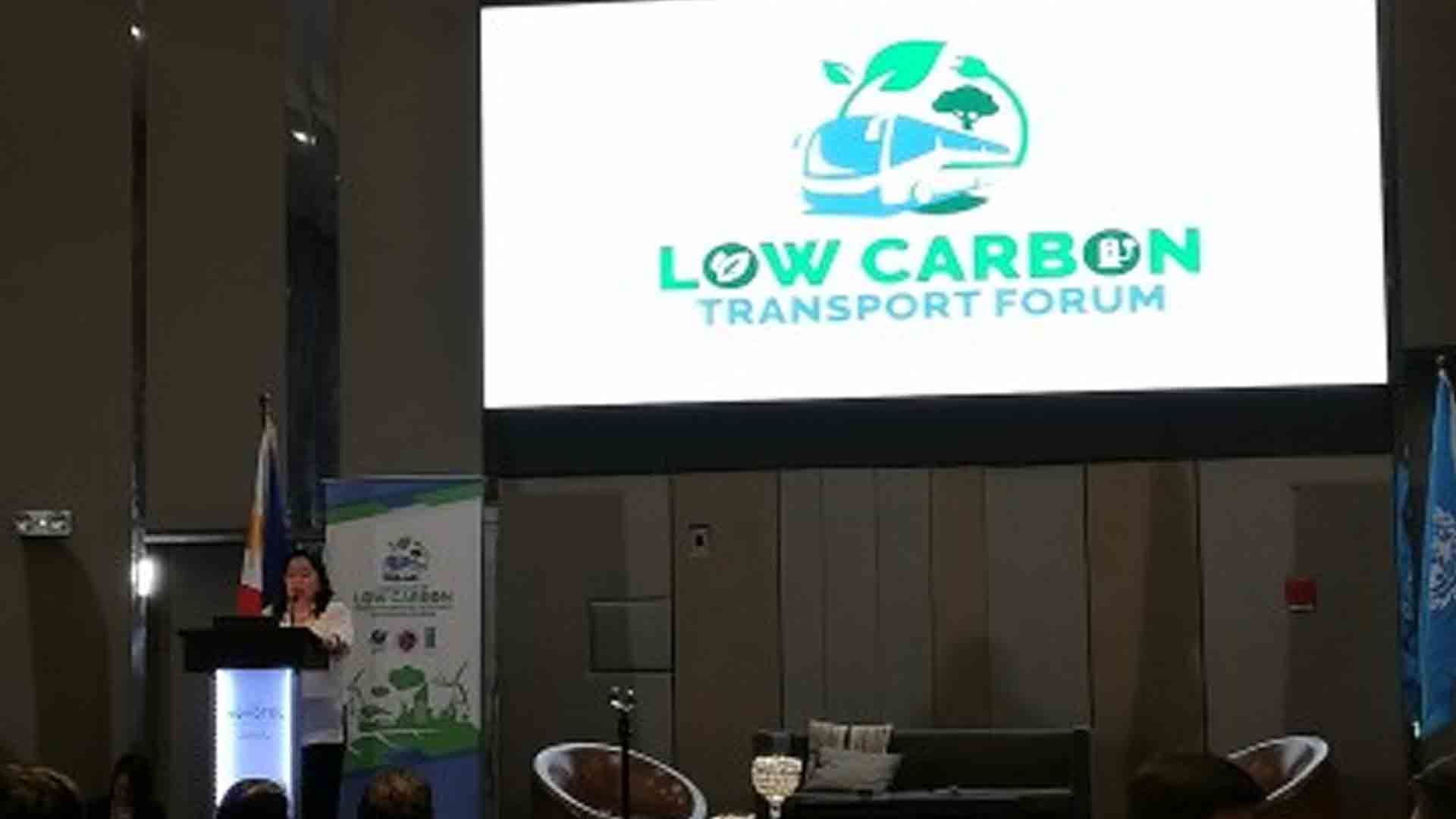Government officials and partners from the private sector are pushing for the use of low carbon urban transport systems (LCUTS) in the country.
In her keynote address at the Low Carbon Transport Forum Tuesday, Department of Transportation (DOTr) Assistant Secretary for Planning and Project Development, Dr. Maria Napalang, said modernizing public transportation, a major contributor to pollution, with LCUTS would be tantamount to helping save the lives of Filipinos.
“By modernizing our transportation system, we are also curbing pollution,” Napalang said.
She said according to studies, 37 percent of the country’s total national energy consumption was composed of the transport system, with 80 percent used by road transport.
Furthermore, Napalang said, the transport sector accounts for 38 percent of greenhouse gas emissions.
Due to the sector’s big impact on pollution, the project to promote LCUTS was organized by the DOTr with the United Nations Development Program and other partners.
During the forum, the use of electric and hybrid vehicles was highlighted, with support for other LCUTS, such as Euro IV-compliant public utility vehicles (PUV).
Aside from the promotion of low carbon emission vehicles, four approaches were discussed to create a more conducive environment for the commercialization of these transport systems.
These approaches include effectively enforcing policies and support for these environment-friendly modes of transport, such as the Public Utility Vehicle Modernization Program, adopting and implementing low carbon transport programs at the local government level and increasing private sector investment, as well as participation in deployment and commercialization.
To help realize its goal of an enabling environment for the commercialization of LCUTS, the project was further divided into three components; policy support for the promotion of LCUTS from the government, awareness and institutional capacity development, and investment in LCUTS in the country.
Aside from Napalang, other speakers during the forum were policy and regulatory specialist Thomas Orbos, Baguio City Mayor Benjamin Magalong, Land Transportation Franchising and Regulatory Board (LTFRB) technical head Joel Bolano, and others from the government and the private sector. (PNA)







